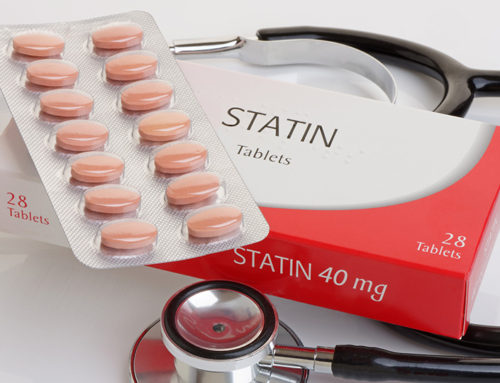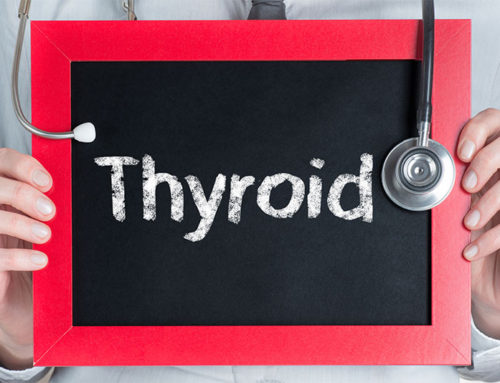Reviewing the new study that’s been widely reported as showing fish oil supplements increase the risk of prostate cancer puts me in mind of a recent review of a Kenny G album:
“There’s a lot to criticize in the music of Kenny G. For example, everything.”
I found that pretty amusing.
This study? Not so much.
There’s nothing amusing about this study, and what the media has done with it is—to paraphrase Samuel Jackson in Pulp Fiction—“very (blank)-ing far from funny”.
Disgraceful, Incompetent, and Scientifically Illiterate
Before we get to the study itself—and we will—let’s talk about the media, whose reporting here is disgraceful, incompetent, and scientifically illiterate. Here’s an example of some of the headlines, the idiocy of which will become clear in just a moment:
- “Omega-3 supplements linked to prostate cancer” (Fox News)
- “Omega-3 supplements could raise prostate risk” (Telegraph)
- “Fish oil supplements linked to prostate cancer” (Health News)
- “Men who take omega-3 supplements at 71% higher risk of prostate cancer” (NY Daily News)
- “Omega-3 supplements may trigger prostate cancer” (Nursing Times)
- “Hold the salmon: Omega-3 fatty acids linked to higher risk of cancer” (CNN)
So, reading this, you might well think that researchers divided a population of men into two groups, gave one group fish oil supplements and the other a placebo, and found that the ones who took the fish oil supplements got way more prostate cancer than the ones who didn’t. Right?
Wrong.
The Truth About The “Fish Oil” Study
The first thing you need to know is that no fish oil supplements—or any other kind of supplements, for that matter- were given in this study. None. This study looked at blood levels of long-chain fatty acids such as those found in fish (EPA and DHA). And even there, the association between higher blood levels and prostate cancer—which we’ll get to in a minute—was only found for DHA. No association was found between EPA and prostate cancer, nor between prostate cancer and ALA (the omega-3 found in flax and chia).
How do you explain the fact that reporter after reporter and news outlet after news outlet equated higher blood levels of DHA with “fish oil supplement taking”? There’s almost no other explanation other than a strong anti-supplement bias and a desire for shocking headlines. And any doubt about the objectivity of the researchers should have been abandoned after one of them—Dr. Alan Kristy—told reporters…
“We’ve shown once again that use of nutritional supplements may be harmful”.
So let’s be clear. Supplements weren’t a part of the study and weren’t given to the participants. Period.
No, like so many studies these days, this was an observational study (based on data from participants in the Prostate Cancer Prevention Trial from 1994-2003). There was no experiment, just an observation about what things were found together in this particular population.
Stranger than Fiction: Trans Fats Protective!
Want to know what else the researchers found? Participants who had the highest levels of trans fats in their blood also had the least risk for prostate cancer.
So, if you want to jump to conclusions and take action immediately, here are two things you should do right now to protect your health:
- Stop eating fish
- Start eating trans fats
No one in the media is dumb enough to tell us to do that. These same folks are, however, casting doubt about the safety of omega-3 supplements, which— in case you happened to miss this the first two or three times I mentioned it– were not used in the study.
If blood levels of omega-3’s are the problem, fish should be just as “dangerous” as fish oil supplements. And– so far, at least– I haven’t heard any media pundits advise us to stop eating salmon and start scarfing down donuts and margarine– because they’re so rich in “protective” trans fats.
Study Debunking 101: Why Were DHA Levels High?
The best study debunker in the business– Denise Minger— points out that DHA levels in the blood do not necessarily track with dietary intake. The men with the higher levels of DHA weren’t necessarily eating more fish, and we pretty much know that the majority weren’t taking supplements (because the researchers said as much). Though DHA levels in the blood go up when you consume lots of omega-3’s, they can also go up for other reasons, one of them being a low-fat diet.
Think about that for a minute.
Minger also points out that the “highest levels of serum DHA” were based on percentage values, not absolute values. Let’s just say that percentage-based measurements can be…..well, misleading. A higher percentage of DHA might mean a lower percentage of something that the researchers didn’t investigate. (They only looked at 8 fatty acids.) “Expressing plasma phospholipid fatty acid composition as a percentage of the total is meaningful only when the total fatty acid content is identical for all subjects”, writes Dr. Ching Kuang Chow in the American Journal of Nutrition.
Write One Hundred Times on the Blackboard: Correlation is not Causation
It’s worth repeating—and repeating, and repeating- that correlation is not causation. Observational studies like this one are not randomized controlled studies. They simply point to associations—like the fact that people who have “yellow fingers” tend to have higher rates of lung cancer. They don’t tell us why those associations exist.
(Yellow finger syndrome is a “side-effect” of holding cigarettes in your hand all day long. Clearly, yellow fingers don’t “cause” lung cancer, even though there’s a strong positive association between the two.)
In this study, we have no idea why higher blood levels of DHA were found to be associated with higher levels of risk for aggressive prostate cancer. DHA might be a marker for something else, just as “yellow fingers” are a “marker” for smoking. Researchers say they like to “control” for extraneous variables, but for reasons unknown, these researchers did not “control” for such variables as age and race and… oh yes, diet. God knows what else they didn’t “control” for.
As Minger puts it:
“This is a classic case of correlation clashing with biological plausibility – and it highlights why observational studies, with their slew of undocumented variables and contradictory findings, can’t tell us anything definitive about food and disease.”
And while we’re on the subject of confounding variables consider these statistics from the study, courtesy of my friend Bob Roundtree, MD, Medical Director for Thorne Research:
- 53 percent of the subjects with prostate cancer were smokers.
- 64 percent of the cancer subjects regularly consumed alcohol.
- 30 percent of the cancer subjects had at least one first-degree relative with prostate cancer.
- 80 percent of the cancer subjects were overweight or obese.
Context is Everything
Finally, let’s put this study in context. There have been literally thousands of published studies on omega-3 fats, spanning the course of over three decades and including not just observational studies, but randomized controlled trials as well.
The overwhelming majority of them have been positive, so much so that when it comes to fish oil, even mainstream medicine has overcome its default bias against vitamin supplements. Major establishment health organizations now recommend fish eating and, often, fish oil supplementation. Even Big Pharma is getting in on the act, with pharmaceutical companies (GlaxoSmithKline) marketing prescription fish oil products (Lovaza).
Jumping to the opposite conclusion from one or two observational studies—particularly observational studies that contradict the bulk of the research, leave out a number of critical variables like diet, and postulate no biological mechanism that could explain the odd findings—certainly makes for good headlines.
It doesn’t, however, make for good sense.














Great job Jonny. I was waiting for you to respond to this. Maybe that doctor can give his stats for how many people are actually harmed by supplements every year. I’m betting it’s vanishingly small. How much omega 3 are you recommending now? Are you still taking 2 tablespoons every morning?
Hey Johnny!
Take a look at the work of Ray Peat. Just sayin’
raypeat.com/articles/articles/fishoil.shtml
Have a nice day!
Thanks for clearing up the controversy on fish oil. People need to do their homework and stop believing everything they hear. It is never what it appears to be when the media gets a hold of it.
Maybe next time they will make a case for water causing death. Everyone who dies has had some water.
Dangerous!!!!
Mary
The past repeats itself. Weren’t those similar sounding words spoken in the 1930’s with the appearance of corn oil and margarine?
Thanks for this report it really helped me to get my head straight after the media frenzy last week !
Thank you
Heather
Love this! I love when I can find someone who at least cares about finding the truth in the media, regarding anything. As soon as a I heard this study I immediately knew the nutritionists who were going to face it head on.
I was wondering about this as a regular taker of Fish Oil and salmon eating, it didn’t seem to make sense.
Thanks for the proper info 🙂
So true Doc. This is really saying one should avoid ice cream, as it has been shown that consumption of ice cream is closely related to drowning. Similarly, wearing shoes historically is correlated with the onset of Schizophrenia in the past, a clear warning sign to avoid ice cream and shoes, I think. Failing to integrate multiple factors before opining seems to just never want to go away, and our researchers continue to look at things in isolation.
this is terrific– great examples i can use when i lecture. As good as my classic “storks and babies” correlation, which is true in certain parts of Denmark
warmly
jb
As usual great analysis Jonny! Also, you are spot on with Omega-3s.
I gotta laugh at that one and I thought Fox news was better then that. Thanks for clearing that up.
Jommy,
May I link this article in my next newsletter? You’ve given an excellent explanation of the issue…also, it’ll save me from writing a similar article debunking the study. 🙂
of course! and thank you for asking!
warmly
jb
Dear Jonny,
As an acknowledged expert in the field, isn’t there some process by which at least the scientific journals publishing such wild conclusions can be taken to task, and black-balled in the scientific community? The American Journal of Epedemiology, to which the link on yr blog leads, can surely be asked to withdraw the credibility it gives to such conclusions simply by publishing them. I dont know hoe the system works. Would this be possible?
So, now that I’ve thrown away a half bottle of Omega 3 supplements, is it okay to buy another bottle, and get back on it? Read someplace recently herring is also a good source. What say you?
i say buy high quality omega-3 products like the ones we carry here or on RockwellNutrition.com, and don’t worry about it. Herring has some omega-3’s for sure.
warmly
jb
Good to know
Wonder who funded this study?
Interesting! Thanks for clarifying all this.
Also, what do you think about fermented cod liver oil? Is it better for you than regular fish oil supplements? I know a lot of people in the paleo community are promoting this right now and I was just interested in your thoughts. Thanks!
Great read… As much b.s I knew it was, you explained it very well
The professor involved with this study was on Science Friday, a National Public Radio broadcast. Because his study was published in a major medical journal, he went uncontested as he proclaimed that fish oil supplements are to blame for higher levels of a particular prostate cancer. Not only did he repeatedly recommend not taking fish oil supplements, but supplements of any kind. Shameful misinformation.
There are many ways to skew information to discredit supplements. Here’s one: we don’t know what terrible condition the subjects were in in the first place. Maybe they were about to die and selected to prove their point. We don’t see the actual study to evaluate it for ourselves.
the media seems more interested in shocking people than giving them good information and the shocking headlines gives them more attention and more money.
Dear Dr Bowden,
Love your work, but it is important here to distinguish between Omega-3 sourced from fish which I agree is important versus omega-3 sourced from plants. There are too many studies now that show that ALA form plants is not being effectively converted to EPA and DHA.
Recent studies demonstrate that the plant form of Omega-3, Alpha Linolenic Acid (ALA), is not efficiently converted to its active forms that are effectively used by the body; EPA acid- Eicosapentaenoic acid and DHA acid- Docosahexaenoic acid. Increased levels of ALA in the body can have very serious effects on the body including impact on eyesight and increased risk of prostrate cancer.
Please refer to study: http://jn.nutrition.org/content/134/4/919.full
And to http://www.ncbi.nlm.nih.gov/pubmed/17536124
And also see: http://www.ncbi.nlm.nih.gov/pubmed/9637947
Unfortunately flaxseed oil has a very high proportion of ALA that is not easily converted in the body to EPA and DHA.
Please send me a message to my email.